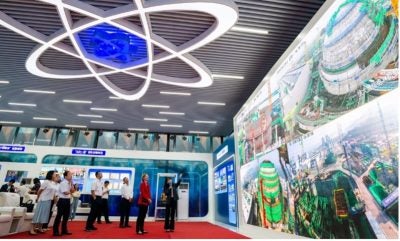
China is targeting annual direct economic output value from its nuclear technology application industry at CNY400bn ($56bn) by 2026. The target is set in an action plan, jointly released by China Atomic Energy Authority (CAEA), the National Development & Reform Commission (NDRC) and other departments, which aims to support the development of the nuclear technology application industry over the next three years.
The development of nuclear technology application industry is viewed as an inevitable trend to promote the high-quality development of the nuclear industry, as well as an important means of supporting the transformation and upgrading of the national economy.
By 2026, the independent innovation capability of China’s nuclear technology application industry will be significantly enhanced, and the industrial field will be further expanded, according to the plan.
Over the next three years, breakthroughs will be made in a number of key technologies, a number of innovation platforms will be built, and new enterprises will be cultivated, focusing on the application of nuclear technology in the fields such as medical diagnosis and treatment, agricultural breeding, food processing, safety and security, it added.
China has made a number of advances in its nuclear technology this year. In April, China has started the mass production of carbon-14 at a commercial nuclear reactor. The carbon-14 isotope (C-14) was produced by the Qinshan NPP in Zhejiang province, which is operated by a China National Nuclear Corporation (CNNC) subsidiary. In October, scientists at CNNC’s China Institute of Atomic Energy (CIAE) achieved a breakthrough in low-temperature distillation of Boron-10 isotopes to stably produce enriched Boron-10 products. Also in October, scientists at the Institute of Modern Physics at the Chinese Academy of Sciences discovered a new isotope – plutonium-227. This was the 39th new isotope discovered by the Institute.
In September, China National Nuclear Corporation (CNNC) held a conference at the Vienna headquarters of the International Atomic Energy Agency (IAEA) to announce the opening of 12 nuclear research facilities to global partners. The 12 facilities include the China Advanced Research Reactor (CARR), China’s new-generation tokamak device Huanliu-3 (HL-3), the Beishan Underground Research Laboratory (Beishan URL) located 560 metres underground, and the Minjiang Test Reactor for irradiation tests and isotope production.






